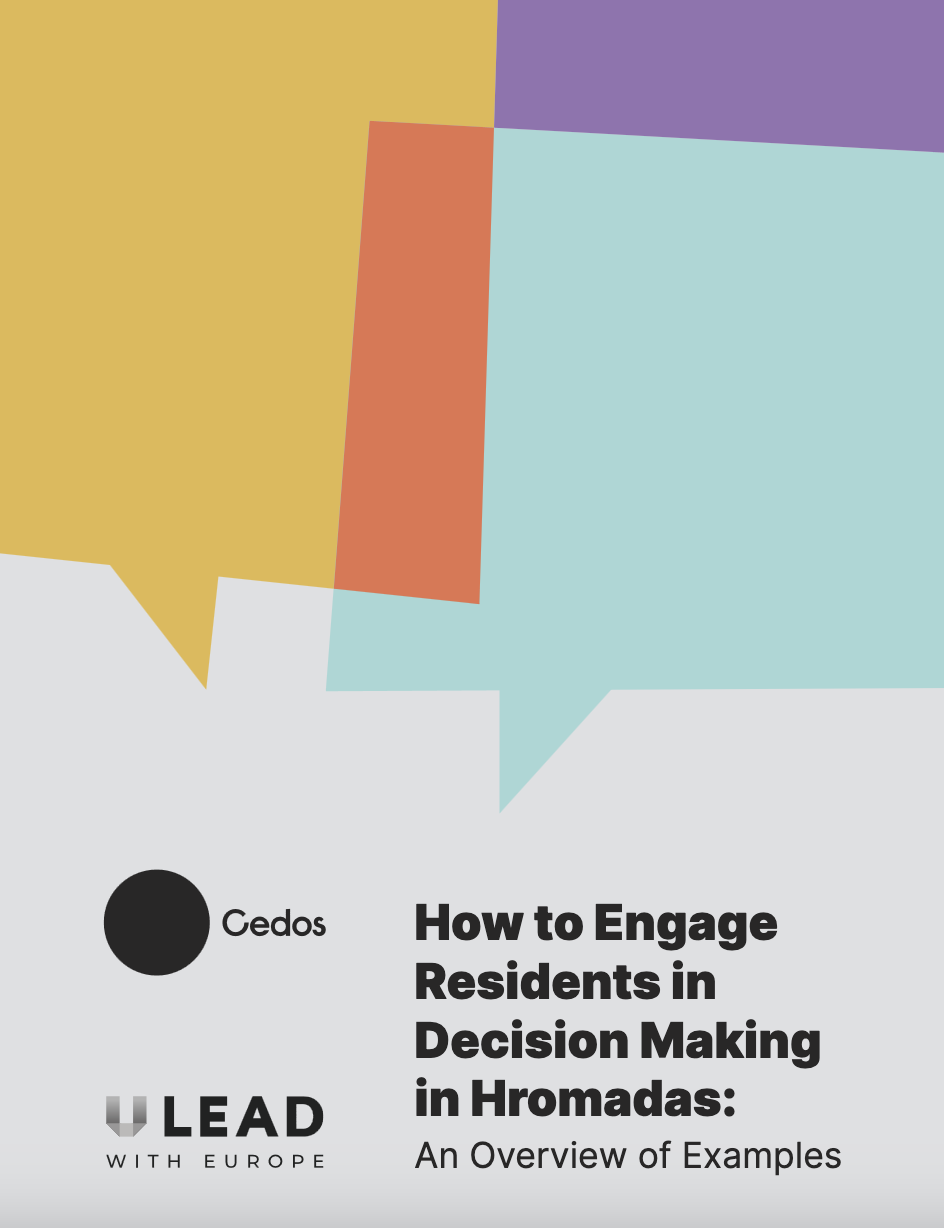Guideline “How to Engage Residents in Decision Making in Hromadas: An Overview of Examples”
by Cedos
This guideline by Cedos describes the theoretical and practical aspects of engaging residents in hromadas decision-making, as well as key studies and instruments.
The key goal of the handbook is to describe the experience of Ukrainian municipalities in implementing participatory projects before 2022. This experience, when comprehensively reviewed, can serve as the foundation for building approaches to citizen engagement in the processes of Ukraine’s recovery. The collection describes 7 examples of project implementation with citizen engagement in decision-making processes in Ukrainian municipalities, implemented in the period of 2017–2022. The selected cases represent varied approaches to engaging key actors in the articulation of development strategies for territorial hromadas, the development of sectoral policies, and the implementation of strategic projects in education, culture, spatial development, climate change adaptation, inclusivity, etc. While selecting the cases, the authors tried to represent the experiences of implementation of projects with various lengths (both long-term and short-term), projects which require various levels of resource support (strategic and tactical projects), projects from various Ukrainian regions. The project descriptions contain detailed information on the planning stages, key stakeholder analysis, key stakeholder engagement practices, and recommendations based on their own experience from teams that implemented the participatory projects. The handbook will be useful for local government representatives, researchers of participatory decision-making practices in Ukrainian hromadas, activists, members of civil society organizations and others.
This publication has been prepared with support from the European Union and its member states Germany, Poland, Denmark, and Slovenia. The contents of this publication are the exclusive responsibility of its authors and do not necessarily reflect the position of the U-LEAD with Europe Programme, the European Union, and its member states Germany, Poland, Denmark, or Slovenia.
